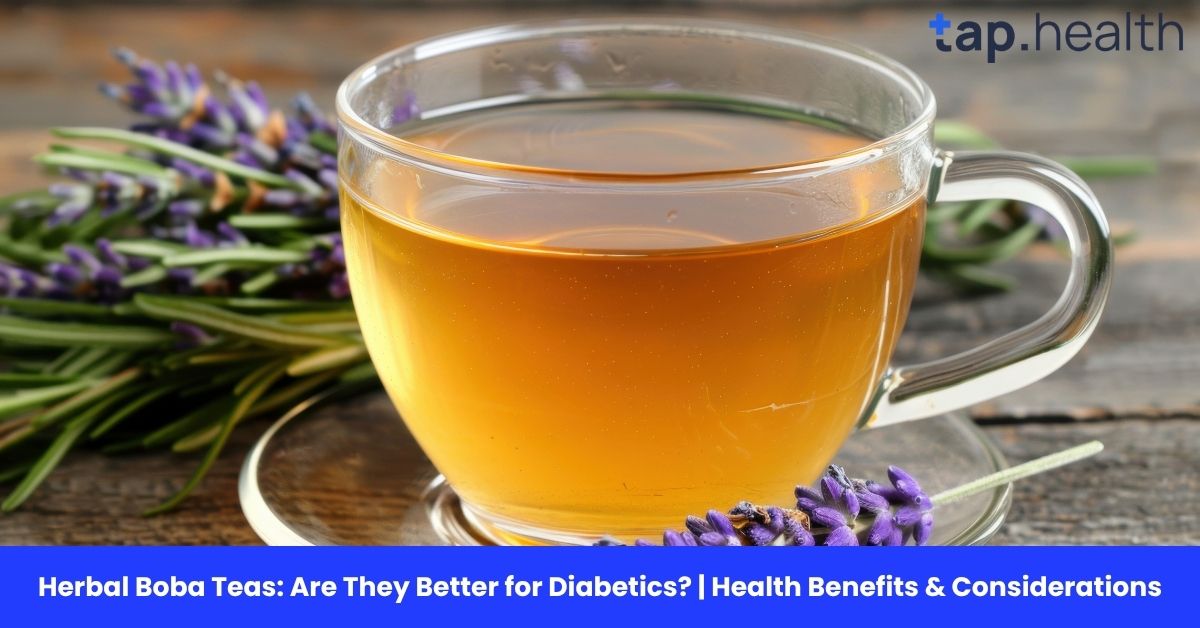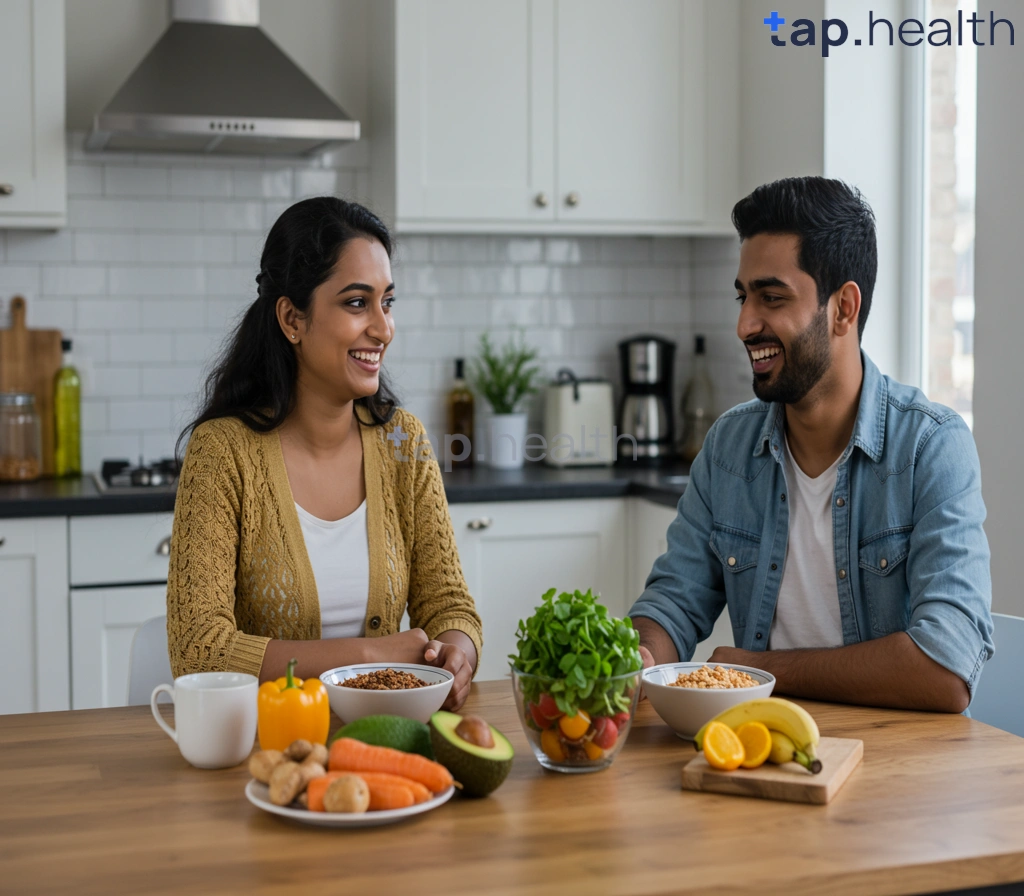Boba tea, also known as bubble tea, has become a global phenomenon, thanks to its refreshing taste and unique texture. While traditionally made with sweetened tea and chewy tapioca pearls, many tea enthusiasts now seek healthier alternatives. One such trend gaining popularity is herbal boba tea. But, if you’re diabetic or concerned about blood sugar levels, you might be wondering: Are herbal boba teas a safe choice? This article will explore the various aspects of herbal boba tea for diabetics, including its health benefits, potential risks, and the best choices for managing blood sugar.
What is Herbal Boba Tea?
Herbal boba tea is a variant of traditional boba tea made with herbal infusions rather than the usual black or green tea. Common herbal options include chamomile, hibiscus, lemongrass, and peppermint. These herbal teas are often combined with chewy tapioca pearls, fruit add-ins, or sweeteners.
Unlike the conventional boba, which typically uses sweetened black or green tea, herbal teas often have milder flavours, and many come with added health benefits. The inclusion of natural herbs may reduce the caffeine content, making herbal boba tea a gentler choice for those avoiding caffeine or sensitive to it.
Benefits of Herbal Boba Tea for Diabetics
Diabetes management is all about balancing blood sugar levels, and this makes the choice of beverages crucial. Herbal boba tea, while generally lower in sugar than traditional boba, can be a suitable option when chosen wisely.
1. Lower Glycaemic Index
Herbal teas typically have a lower glycaemic index (GI) than regular black or green tea. The GI measures how quickly foods and drinks raise blood sugar levels. A lower GI is beneficial for diabetics as it helps prevent sudden spikes in blood sugar. While the tapioca pearls may increase the GI, opting for alternatives like chia seeds or coconut pearls can be a better choice.
2. Herbal Teas with Diabetic Benefits
Many herbal teas, such as chamomile and ginger, have been shown to have properties that can help in diabetes management. Chamomile, for example, has been linked to improved blood sugar control and may help reduce inflammation. Similarly, ginger may help in lowering blood sugar and improving insulin sensitivity.
3. Caffeine-Free Options
Diabetics often need to monitor their caffeine intake, as caffeine can affect blood sugar levels. Herbal boba teas that are naturally caffeine-free, such as chamomile or hibiscus tea, provide a relaxing, soothing experience without the risk of caffeine-induced fluctuations in blood sugar levels.
4. Rich in Antioxidants
Herbal teas are often packed with antioxidants, which can be beneficial for diabetics. These antioxidants help reduce oxidative stress, which is a contributing factor to complications associated with diabetes. Teas like hibiscus tea are rich in anthocyanins, which can help improve overall health and reduce inflammation.
Are Herbal Boba Teas Sugar-Free?
The sugar content in herbal boba tea depends largely on the type of sweetener used. Traditional boba tea contains a significant amount of sugar, which is often added to the tea or tapioca pearls during preparation. However, in herbal boba teas, you can control the sugar level by opting for natural sweeteners or skipping sweeteners altogether.
Natural Sweeteners: Better Options for Diabetics
Some of the healthier sweetener options for diabetics include:
- Stevia: A natural, zero-calorie sweetener that doesn’t affect blood sugar levels.
- Erythritol: A sugar alcohol with negligible impact on blood sugar.
- Monk Fruit: A natural, low-calorie sweetener with no effect on blood sugar.
If you’re concerned about blood sugar spikes, it’s advisable to request herbal boba tea with no added sugar or low sugar options. Always check if the herbal tea base contains any hidden sweeteners.
The Role of Tapioca Pearls in Herbal Boba Teas
Tapioca pearls, the chewy spheres at the bottom of every boba drink, are made from cassava starch. These pearls are high in carbohydrates, which can cause a rise in blood sugar levels. The glycaemic index of tapioca pearls is relatively high, meaning they can trigger an increase in blood sugar after consumption.
Can Tapioca Pearls Be Replaced?
Yes, diabetics can opt for healthier alternatives to tapioca pearls, such as:
- Chia Seeds: These are lower in carbohydrates and high in fibre, which can help regulate blood sugar.
- Coconut Pearls: These are made from coconut meat, offering a lower carbohydrate content and a tropical flavour.
- Aloe Vera Pearls: Known for their digestive benefits, aloe vera pearls are another excellent low-carb choice.
While these alternatives are often less chewy than traditional tapioca pearls, they can still provide a satisfying texture with fewer impacts on blood sugar.
Herbal Boba Tea: The Pros and Cons for Diabetics
Pros:
- Herbal Teas Offer Health Benefits: Ingredients like chamomile, ginger, and hibiscus can aid in managing diabetes and overall health.
- Customisable Sugar Levels: Many herbal boba tea shops offer options to reduce or eliminate sugar content, making it easier for diabetics to control their intake.
- Caffeine-Free Choices: Herbal teas are typically caffeine-free, making them suitable for those who need to monitor their caffeine intake.
Cons:
- Potential High Sugar Content in Toppings: Traditional boba drinks often use sweetened pearls, which could be problematic for diabetics. Opting for low-sugar or no-sugar alternatives is essential.
- Carbohydrates from Tapioca Pearls: Even when herbal tea bases are low in sugar, tapioca pearls are high in carbs and can increase blood sugar.
What Should Diabetics Look for in Herbal Boba Tea?
When choosing an herbal boba tea, diabetics should consider the following factors:
- Low Glycaemic Ingredients: Look for herbal teas and toppings that have a low glycaemic index.
- No Added Sugar or Low Sugar: Always ask for the drink to be made with little or no sweetener.
- Health-Conscious Add-ins: Choose toppings like chia seeds or coconut pearls instead of traditional tapioca pearls.
- Opt for Unsweetened Herbal Teas: If possible, choose herbal teas like chamomile or peppermint without added sweeteners.
Read this : How Many Calories in Boba? Full Nutritional Breakdown
Key Takeaways
Herbal boba teas can be a suitable option for diabetics if chosen wisely. By opting for herbal tea bases with low sugar content, avoiding traditional tapioca pearls, and selecting healthier sweeteners, diabetics can enjoy this trendy beverage without compromising their health. Always be mindful of sugar and carb content, and consider healthier alternatives to maintain blood sugar control.
FAQ: Herbal Boba Teas for Diabetics
Q: Can herbal boba teas be sugar-free?
Yes, herbal boba teas can be made sugar-free by using natural sweeteners like stevia or monk fruit or by simply opting for no added sweeteners.
Q: Are tapioca pearls safe for diabetics?
Tapioca pearls are high in carbohydrates, which can cause a spike in blood sugar. Diabetics can opt for low-carb alternatives like chia seeds or coconut pearls.
Q: What are the best herbal teas for diabetics?
Herbal teas like chamomile, hibiscus, and ginger have beneficial properties for diabetics. They can help regulate blood sugar and reduce inflammation.
Q: Does herbal boba tea contain caffeine?
Herbal boba teas are typically caffeine-free, making them a good choice for those sensitive to caffeine or looking to avoid it.
Q: How can I reduce the sugar content in my herbal boba tea?
To reduce sugar content, ask for your herbal boba tea to be made with no added sugar or use sugar substitutes like stevia or erythritol.
Q: Is herbal boba tea healthier than regular boba tea?
Yes, herbal boba tea can be healthier as it often contains fewer calories and can be made with natural, beneficial herbs. However, the choice of toppings and sweeteners plays a crucial role in its healthiness.
Q: Can herbal boba tea help in managing diabetes?
Herbal teas like chamomile and ginger have properties that may help manage blood sugar levels and reduce inflammation, but they should be consumed as part of a balanced diet.
Q: What should diabetics avoid in herbal boba tea?
Diabetics should avoid sweetened tapioca pearls and sugary add-ins, as these can spike blood sugar levels. Always opt for low-sugar or no-sugar options.



